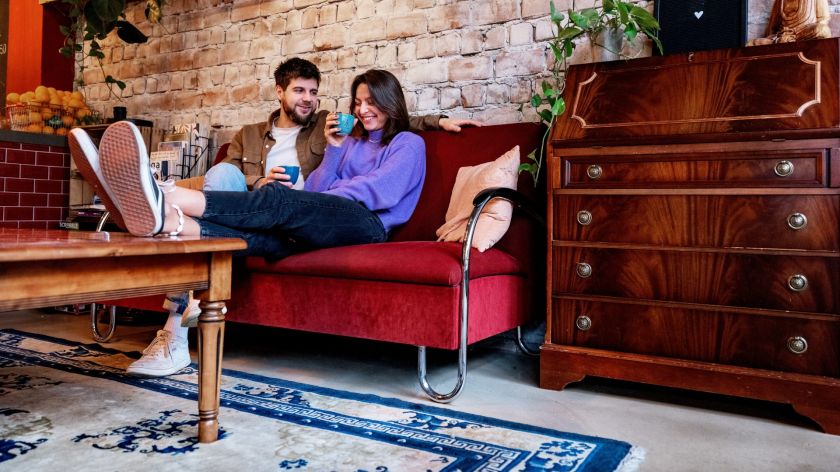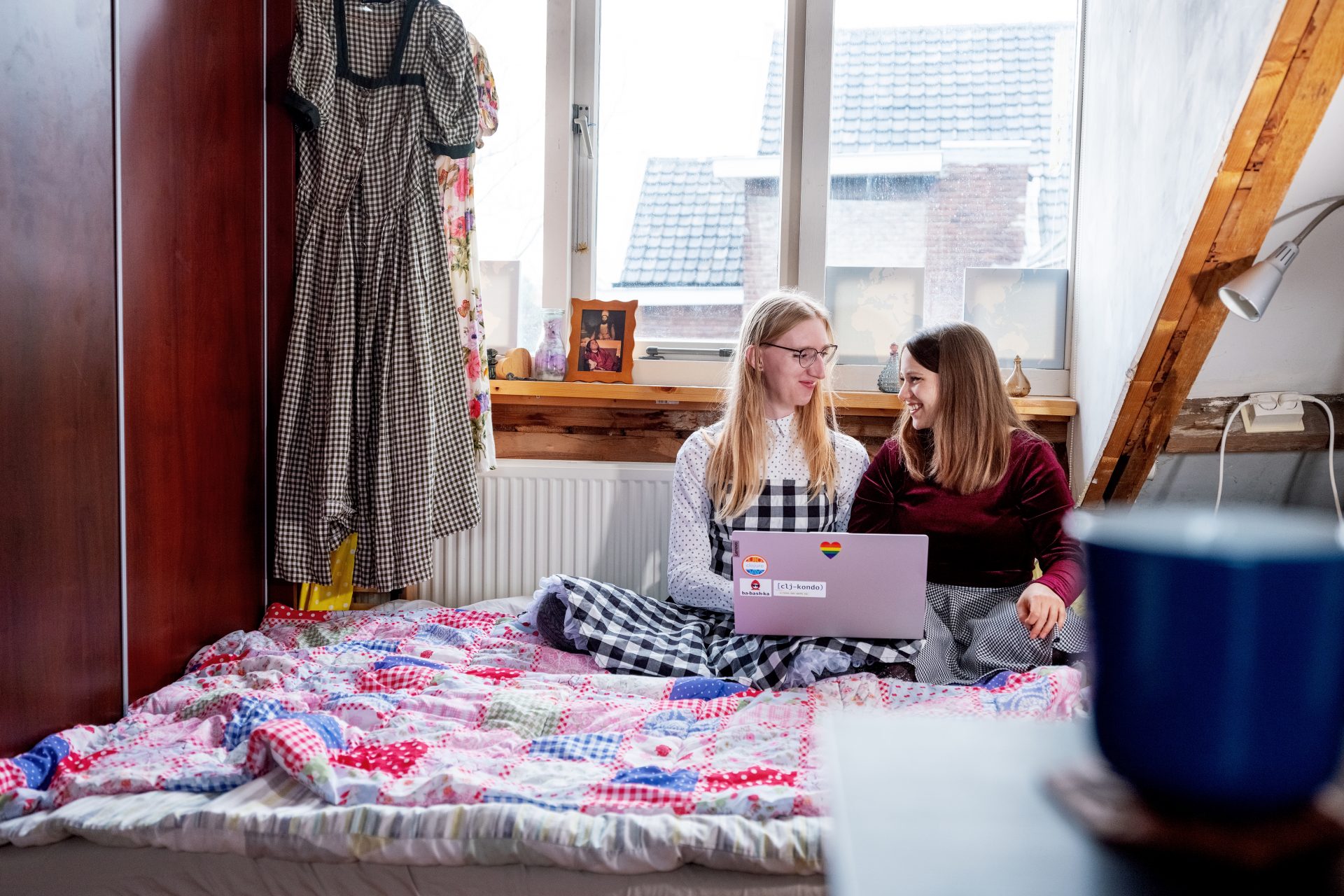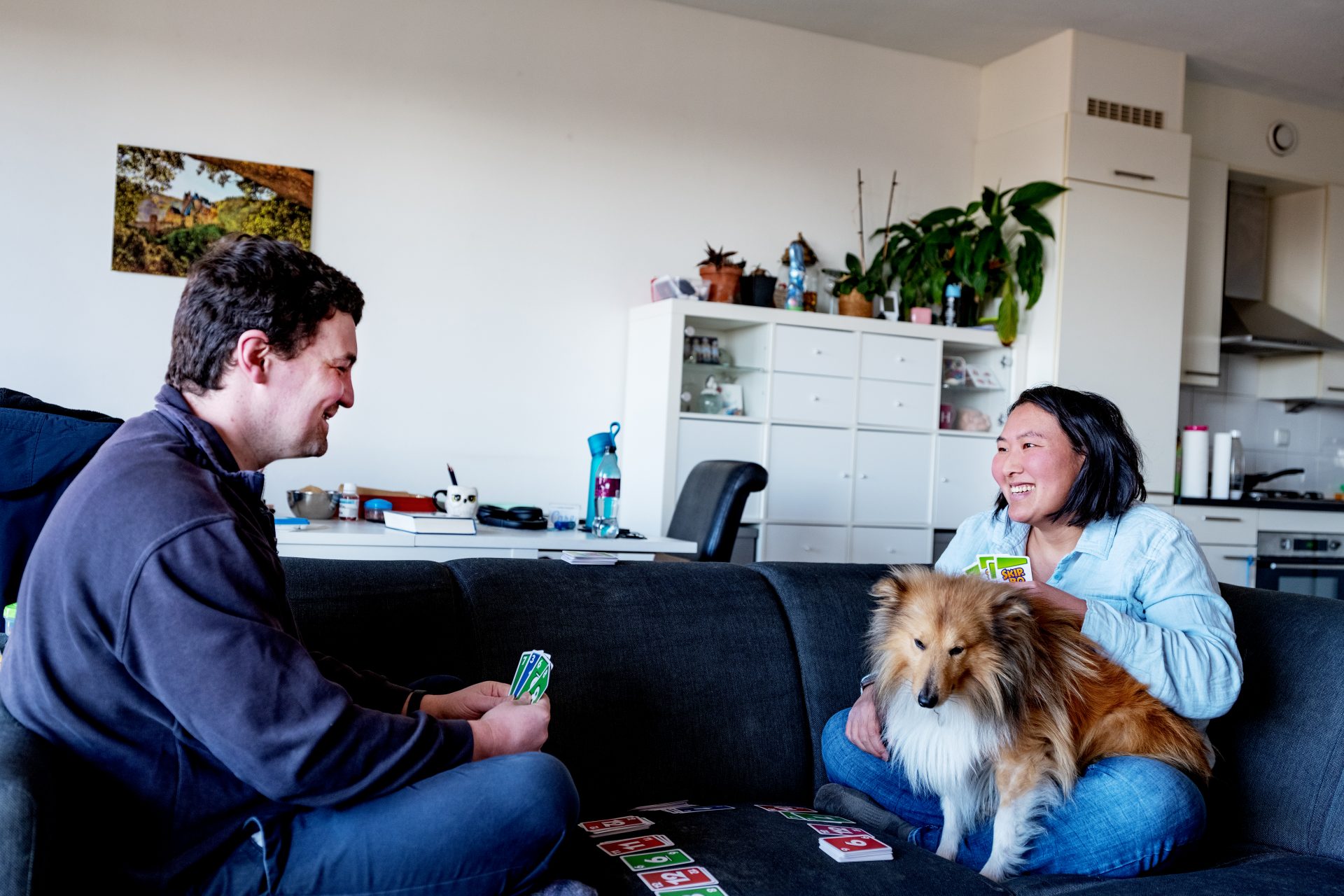Love without borders: for these couples, nationality is no issue
Love can overcome cultural differences, as these German-Dutch couples prove. How do they experience their relationship? 'I don’t actually think of Joke as German at all.’
Joke Reuvers (25, Political Science student) is German, Christiaan Roest (32, owner of Bhalu) Dutch. They have been in a relationship for a year and a half now and have taught each other to speak their respective languages fluently.
Christiaan and Joke met on the terrace of restaurant Bhalu in Nijmegen city centre. Joke: ‘I ordered a cappuccino in broken Dutch. Christiaan replied in very bad German that we could also speak German.’ There was a spark, and the two got involved in a relationship. ‘From then on, we practised each other’s language. We alternated between a day in German and a day in Dutch.’
A year and a half later, they both speak German and Dutch fluently. Their different nationalities aren’t an issue. At most, it creates ‘just that extra bit of challenge’, says Christiaan. ‘But that suits me.’ He mainly sees advantages. ‘I really like the nature in Germany. Also, Christmas with Joke’s family is very cosy.’ Joke: ‘I’m just really happy to be dating a Dutchman. That’s what I always say when I talk to other people about our relationship.’
So are there no cultural differences at all? Oh, yes, there are. ‘What I find really crazy is people congratulating me on Christiaan’s birthday,’ says Joke. Even more absurd: ‘Dutch people lick their knives. If you see someone doing that, you can bet it’s a Dutchman.’
But the reputation Dutch people have for directness isn’t so bad in practice, says Joke. ‘Actually, I’m the one who’s more direct in our relationship. Christiaan recently bought a new pair of trousers and I said: “Urgh, those are ugly!” It took him ten minutes to recover.’ Christiaan: ‘I don’t think either of us fits the stereotype of a Dutch or German person. I don’t actually think of Joke as German at all.’
Biology student Sarah Wössner (28) is from Germany, and Susanne Könings (32, Artificial Intelligence alumnus) from the Netherlands. The two met online and have been together for about three months.
Sarah (on the right) has lived in the Netherlands for nine years, and she has dated Dutch people before. Smilingly, she admits that she already had some experience of the people across the border. She finds their use of clothes pegs to be particularly impressive. ‘The Dutch use them for all sorts of things other than laundry – I don’t understand that at all.’
According to Susanne, Sarah is in all other ways quite Dutchified. Sarah: ‘Then again, Susanne isn’t a stereotypical Dutch person. She’s not as direct as some Dutch people, and, like Germans, she thinks a bit longer about how something might come across before she speaks.’
This is Susan’s first relationship with a person from Germany, so she finds it hard to say what makes Sarah typically German. To get some ‘fingerspitzengefühl’ for it, she is currently learning the language. This should also make it easier to chat with her in-laws. Susanne: ‘Then hopefully I’lll finally be able to understand all the Instagram jokes Sarah keeps showing me.’
The two don’t experience any irreconcilable cultural differences, but Susanne’s cycling behaviour is remarkable, in Sarah’s opinion. ‘It doesn’t matter if it’s still dark in the morning, or if something is very far away: she always wants to cycle everywhere.’ Susanne manages to compensate for this typically Dutch trait with something quite German. ‘I don’t like those limp Dutch sandwiches from the supermarket. Give me some strong and hearty bread any day.’ Sarah nods approvingly: ‘See, when I hear that, it makes my heart beat faster.’
Henning Meredig (lecturer in Modern languages and Cultures) and Lianne la Faille have really found each other despite a number of cultural differences.
Dutch Lianne likes her friend’s German structure, and for his part, Henning has no issue with the Dutch directness. In fact, he thinks the Dutch could be a bit more direct at times. For example, when they have a work appointment. In Henning’s experience, they first have to talk about the weather or the traffic. ‘They want to get to know each other, before starting a business conversation. That’s not efficient at all, is it? You’ve only got one hour!’
This German pragmatism sometimes also shows up at home. ‘At dinner, Lianne used to keep repeating how good the food was, as do a lot of Dutch people.’ Lianne looks at him in surprise at first, then bursts into laughter as Henning gives a demonstration: “Hmm… what a yummy soup. So yummy. What a delicious soup.” We just say it once and that’s it.’
So it is Germans who can come across as a bit blunter, Henning concludes. ‘Remarkably, abroad, it’s the other way around. We Germans are a bit more wait-and-see, and we ask politely if we don’t know something. The Dutch can be a bit rude.’ Lianne guiltily agrees. ‘You can hear Dutch people coming from far away!’
They’re also a bit more naive, she thinks. ‘Whenever I see a discount promotion in the shop, I immediately get excited.’ Henning: ‘So then I have to explain that the supermarket still makes a profit. But that doesn’t matter to her – as long as it’s a bargain. To put it bluntly: as soon as Dutch people see the word “free”, they’re happy.’







